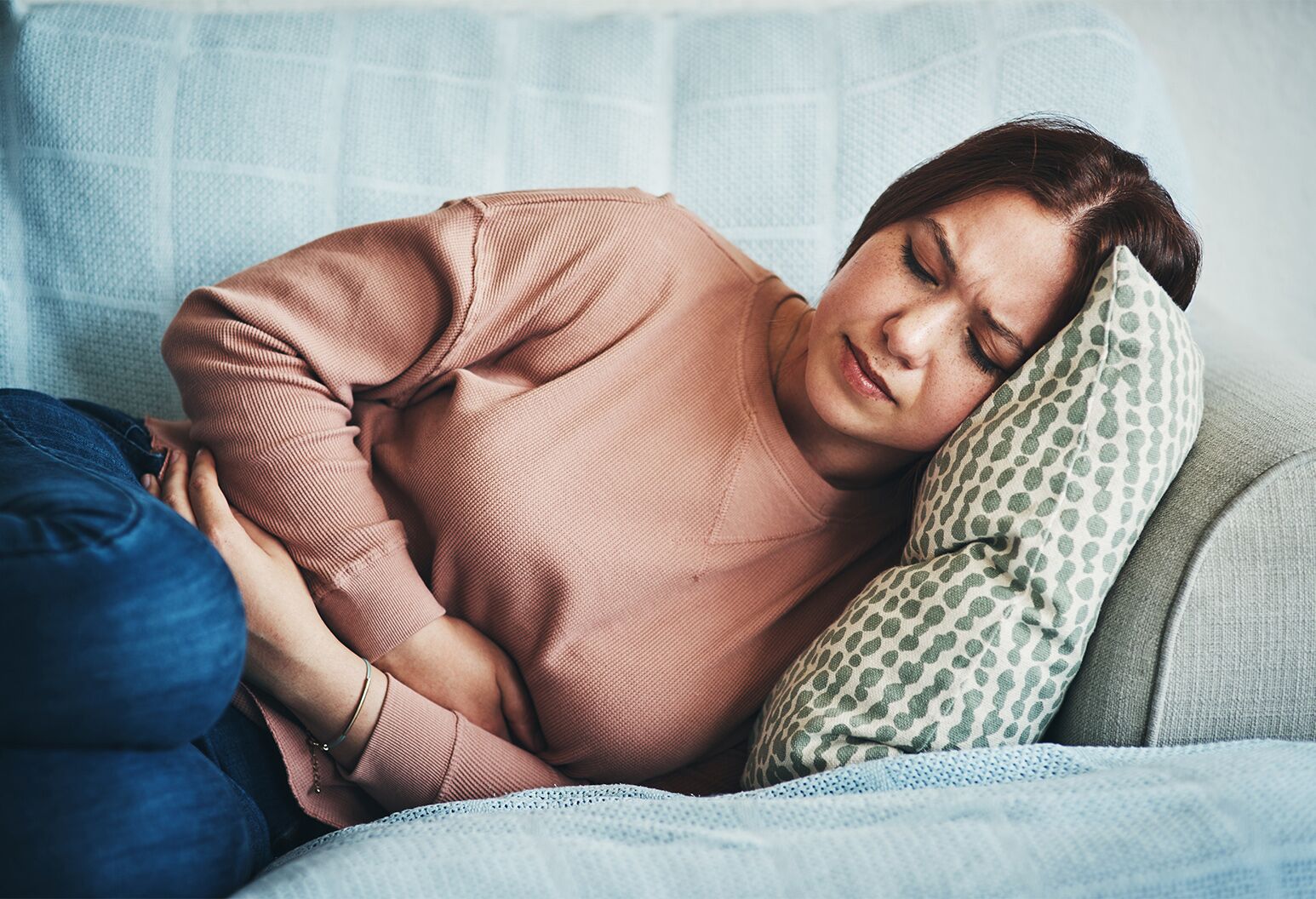Our representatives are available to schedule your appointment Monday through Friday from 9am to 5pm.
For a Northwell ambulance, call
(833) 259-2367.

The names don’t exactly roll off the tongue: Crohn’s disease and ulcerative colitis. But these two types of inflammatory bowel disease (IBD) are common, painful and serious, affecting more than 3 million Americans. While equal numbers of men and women suffer, these conditions are particularly tough on women, says Ramona Rajapakse, MD, a Mather Hospital gastroenterologist specializing in IBD.
The good news: There are very effective treatments for these conditions. But understanding the gender effect is key to proper diagnosis and effective treatment — and unfortunately, many women don’t recognize that they’re carrying an extra burden from the disease. Even doctors may not focus on it, which is why Dr. Rajapakse says it’s important to know that Crohn’s disease and ulcerative colitis pose five unique challenges for women:
IBD occurs when the body’s immune system mistakenly attacks cells in the gastrointestinal tract, leading to inflammation. Symptoms depend on how severe the inflammation is and where in your GI tract it occurs, but you may have diarrhea, rectal bleeding, abdominal pain and cramping, fatigue and weight loss. “These can be exhausting, debilitating illnesses,” says Dr. Rajapakse. “Severe cases can be life-threatening, but even a mild version can have a big impact on your quality of life.” Women often find that their symptoms worsen during menstruation, says Dr. Rajapakse. Adding insult to injury, women with IBD are more likely than other women to suffer from premenstrual headaches and cramps.
You probably already know that menstrual bleeding increases the odds of becoming anemic. That’s because blood loss during your period carries iron out of your body, which leaves red blood cells less able to deliver oxygen to tissues from your head to your toes. The result: You feel tired and short of breath. Iron-deficiency anemia is even more likely for women with IBD, because it can cause digestive tract bleeding; the disease can also impair your body’s ability to absorb iron. Symptoms of IBD, like diarrhea and cramping, also may make it harder for you to eat and get the nutrients you need to function at your peak.
Uncontrolled inflammation can make it harder for sperm to reach the egg — and if IBD flares during pregnancy, it may increase the risk of complications. “When young women with active disease tell me they want to get pregnant, the first thing I tell them is that they have got to get their inflammation under control,” says Dr. Rajapakse. “That’s when their fertility will improve.” Fortunately, she says, most medications used to treat inflammation are safe for pregnant women.
This is a big difference Dr. Rajapakse sees between her male and female patients. “Women with Crohn’s disease often suffer from sexual issues, particularly if the disease affects the digestive tract near the perineum, the area between your vagina and anus,” she explains. Inflammation can also sometimes erode through the intestinal wall, creating a fistula — a connection between different body parts that shouldn’t be there, such as between the intestine and the vagina, or the vagina and the rectum. A fistula can be painful and can cause a serious infection or other complications — but it is treatable.
Given the bigger burden of symptoms, perhaps it’s no wonder that research shows women with IBD are more likely to develop depression or anxiety than men with the condition. “For some women, Crohn’s disease can lead to pain during intercourse. Other women who are embarrassed and uncomfortable about symptoms may experience body image problems,” Dr. Rajapakse says. “That can lead to depression and low self-esteem.”
There’s no cure for Crohn’s disease or ulcerative colitis, but there are many good options to help ease symptoms, reduce the risk of complications and improve your quality of life. It is important that the appropriate treatment is begun early in the course of illness in order to minimize problems. This may include medication, diet and lifestyle changes, and, in some cases, surgery. Counseling can also help with the emotional challenges of IBD.
Sharing some of the private or embarrassing side effects of IBD may feel awkward. “But women need to realize that they are not alone,” Dr. Rajapakse says. “Especially for my younger patients, getting to know other women with IBD can make all the difference.” She often refers patients to IBD support groups to help them connect with others, learn more about the condition and share common problems and solutions. Frank conversation with your doctor is even more important, Dr. Rajapakse says: Keep track of your symptoms and ask about concerns. For example, many women are wary of taking medication during a flare for fear it will affect fertility, she says, “but in fact the opposite is true.”
Whether you’re facing challenges about sex, body image or digestive problems, honest talk is the fastest route to the right interventions, she says. And that can make all the difference in managing your disease and living an active, satisfying life.
Our representatives are available to schedule your appointment Monday through Friday from 9am to 5pm.
For a Northwell ambulance, call
(833) 259-2367.